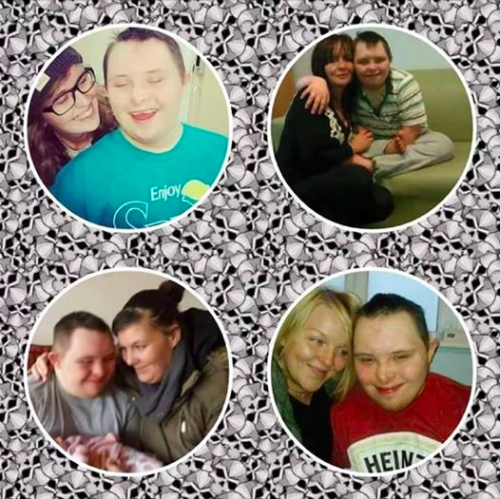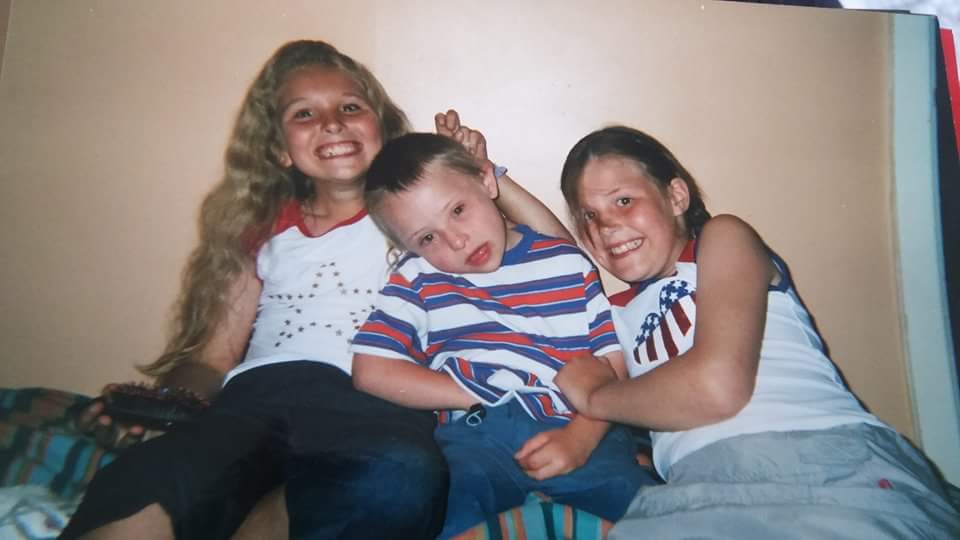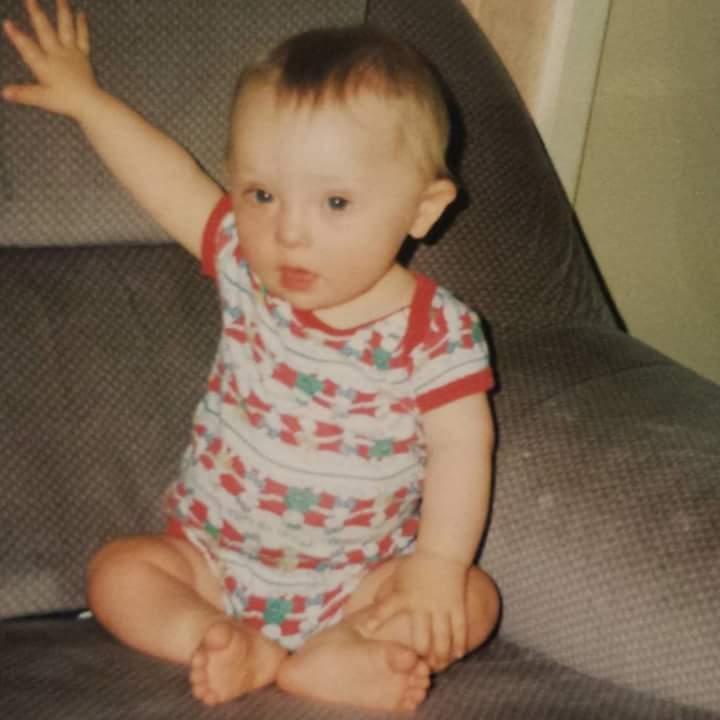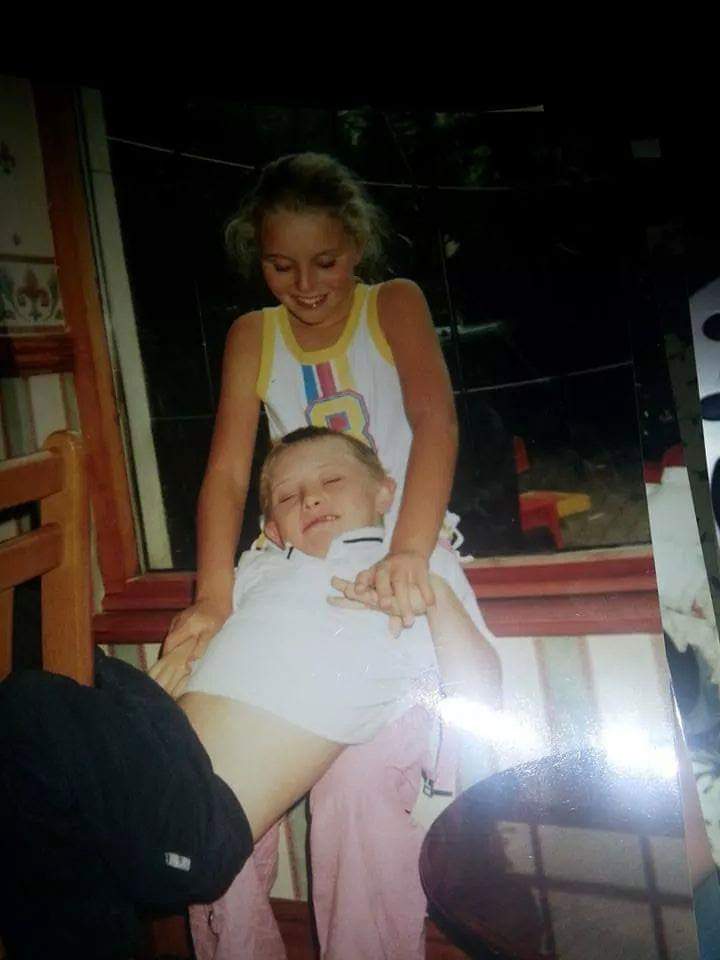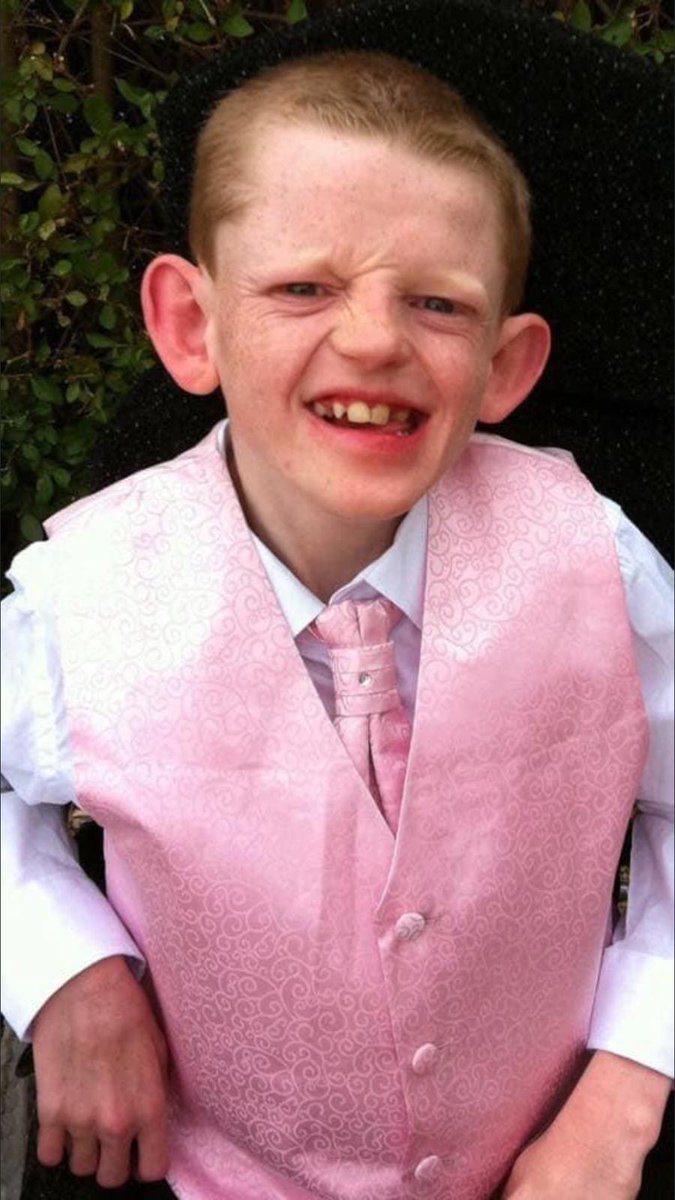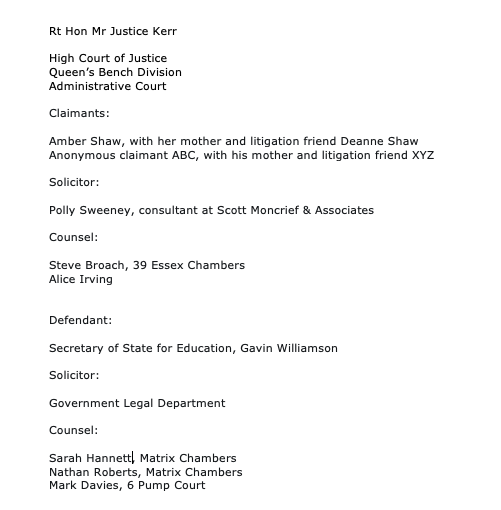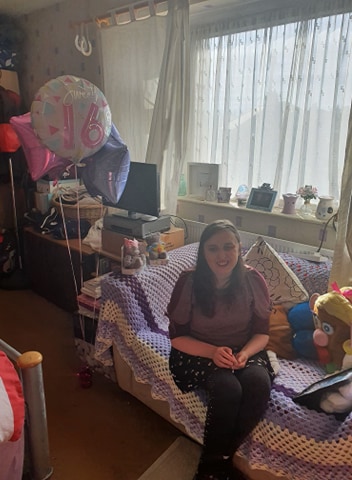
Twitter, indulge me in a quick trip back down memory lane would you please. I'd like to talk a little about two beloved young men who died in the care of @Southern_NHSFT and the wider response to their deaths by our beloved #NHS, Connor and Edward
1/

1/


Connor was a comedian, unofficially anyway, you can read his mum @sarasiobhan's blog for some highlights, start at the beginning, back before all the shite mydaftlife.wordpress.com/2011/05/26/the….
Sara documented family life, her disastrous travel adventures and LB's brilliance
2/
Sara documented family life, her disastrous travel adventures and LB's brilliance
2/
LB I hear you ask, it was an anonymous blog, LB was Laughing Boy, Connor, hence @JusticeforLB
If you'd like to know more check out Sara's first book uk.bookshop.org/books/justice-… or you can watch this brilliant 15min video from @mylifemychoice1 vimeo.com/130521001
I'll precis
3/
If you'd like to know more check out Sara's first book uk.bookshop.org/books/justice-… or you can watch this brilliant 15min video from @mylifemychoice1 vimeo.com/130521001
I'll precis
3/
Connor loved buses, he loved London, he dreamt of running his own haulage company and his favourite haulier was Eddie Stobart.
He lived in Oxford with his family, in a house full of laughter, there was a lot of (highly infectious infectious) laughter justiceforlb.org/faqs/
4/
He lived in Oxford with his family, in a house full of laughter, there was a lot of (highly infectious infectious) laughter justiceforlb.org/faqs/
4/
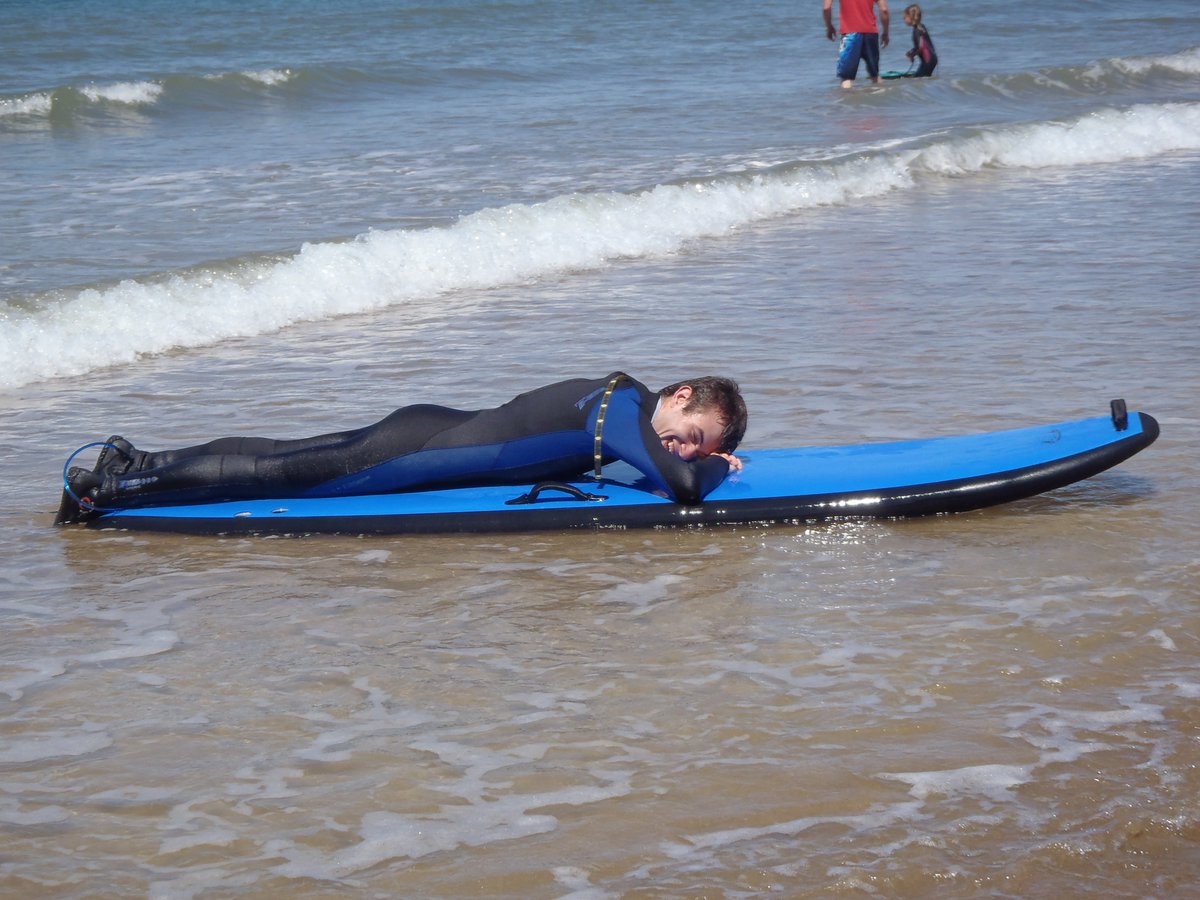
When Connor was 18 he started to get anxious, desperate for support his family looked for (non-existent) help.
[As an aside I reported on this court case in the same area last week, in Oxford, so it looks like not much has changed
5/
[As an aside I reported on this court case in the same area last week, in Oxford, so it looks like not much has changed
https://twitter.com/GeorgeJulian/status/1354861874827960323].
5/
Connor was admitted to an 'assessment and treatment unit' run by Southern Health, in Oxford. There was precious little (no?) assessment or treatment and #107days later LB drowned in a bath, in a hospital, in July 2013.
Connor had epilepsy, autism, and a learning disability
6/
Connor had epilepsy, autism, and a learning disability
6/
Sara had been warning staff about Connor's epilepsy. They hadn't just not understood, they'd wilfully ignored her.
What followed was as an epic fight. Determined to get answers and accountability @sarasiobhan and thousands of others campaigned for #JusticeforLB
7/
What followed was as an epic fight. Determined to get answers and accountability @sarasiobhan and thousands of others campaigned for #JusticeforLB
7/
It was exhausting, relentless and heaped trauma (on top of unimaginable trauma) for Connor's family.
A death classed as natural causes, then painted as a tragedy, later we heard Southern Health brag they weren't an outlier in not investigating learning disabled ppl's deaths
8/
A death classed as natural causes, then painted as a tragedy, later we heard Southern Health brag they weren't an outlier in not investigating learning disabled ppl's deaths
8/
#JusticeforLB was also joyous at times, but you need to read Sara's book to learn more about that.
In terms of #NHS response it was denial and cover up from day one.
A briefing published on @sarasiobhan's social media activity the day after Connor died; focus reputation
9/
In terms of #NHS response it was denial and cover up from day one.
A briefing published on @sarasiobhan's social media activity the day after Connor died; focus reputation
9/
Connor's family weren't giving up though. They fought and fought to ensure Connor's death, and the premature and preventable deaths of learning disabled and autistic people, was known about. To demand better. To find answers.
It was never just about Connor for them.
10/
It was never just about Connor for them.
10/
Following Connor's death there were two Verita 'independent investigations' commissioned by the NHS, there was the Mazars report into deaths in Southern Health care and the CQC Deaths Review as a result of that, and eventually a HSE prosecution @JusticeforLBHSE in March 2018
11/
11/
The HSE prosecution issued a record fine of £2million as it became clear that the Trust had ignored expert health and safety advice and chosen not to make changes to ensure care was safer.
You can read the judgement here judiciary.uk/wp-content/upl…
12/
You can read the judgement here judiciary.uk/wp-content/upl…
12/
Southern Health were prosecuted in relation to the deaths of Connor, and another person Teresa Colvin who died in April 2012, a year before Connor theguardian.com/society/2018/m…
Teresa died in 2012, Connor in 2013
So what has this got to do with Edward I hear you ask?
13/
Teresa died in 2012, Connor in 2013
So what has this got to do with Edward I hear you ask?
13/
Edward's favourite song was DJ Otzi’s Hey Baby, he'd play it on repeat and sing along.
Edward loved food, blonde haired girls, fast cars, noisy engines, combine harvesters, rainbows and the colour yellow.
Edward was his school Prefect for Happiness and Harmony
14/
Edward loved food, blonde haired girls, fast cars, noisy engines, combine harvesters, rainbows and the colour yellow.
Edward was his school Prefect for Happiness and Harmony
14/
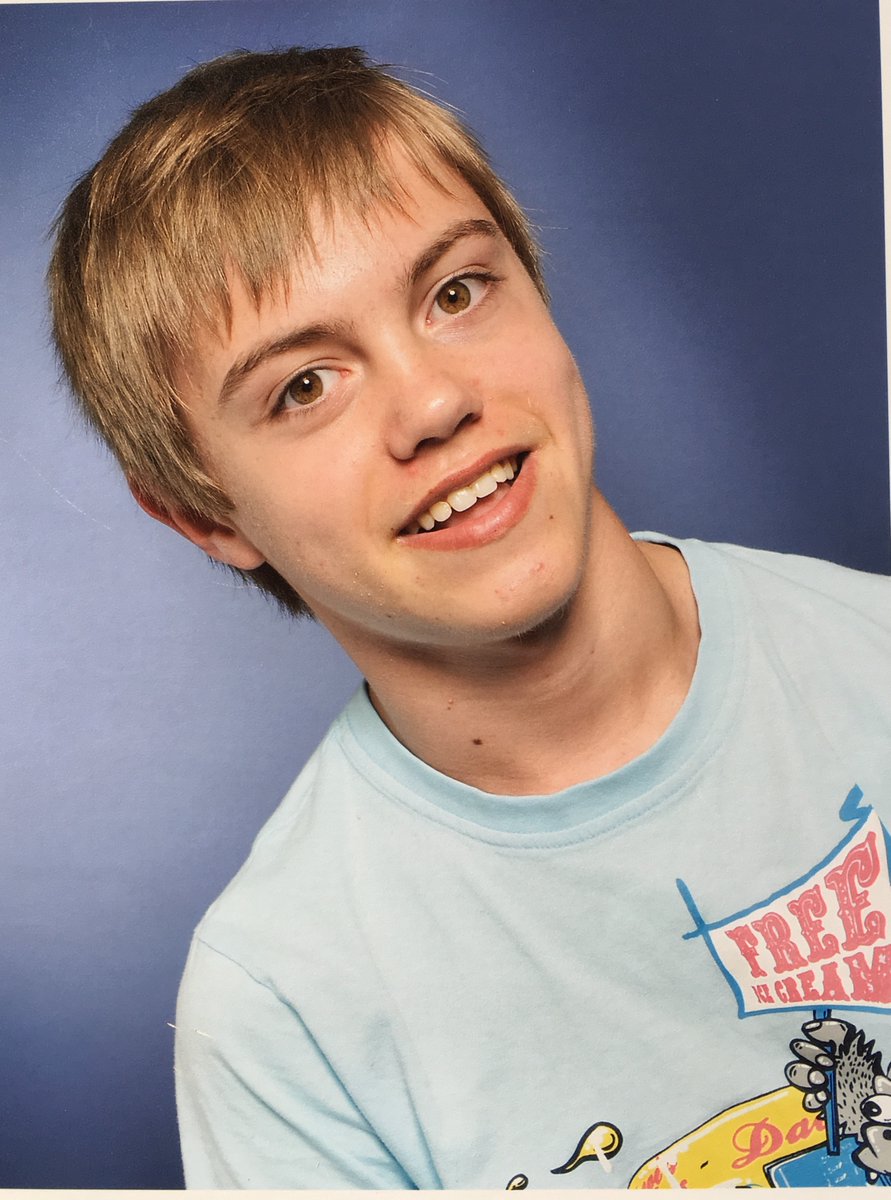
Edward lived in Winchester with his family and he was also just 18, also still a school boy, also receiving care from Southern Health when he died, ten months after Connor justiceforlb.org/edward-a-prefe…
15/
15/
Edward died of cardi-respiratory failure following an epileptic seizure in his own bed at home, not witnessed by the Southern Health Carer employed to monitor Edward for seizures.
The Carer had not checked Edward for 2.5 hours before he checked him just before 8 am.
16/
The Carer had not checked Edward for 2.5 hours before he checked him just before 8 am.
16/
On finding Edward the carer didn't call for an ambulance or attempt CPR, didn't do anything, just went into shock.
It was left to Jane, Edward's mum, to call for help and attempt CPR on her lifeless son. She described how not doing so 'wasn't an option'
[Can you imagine]
17/
It was left to Jane, Edward's mum, to call for help and attempt CPR on her lifeless son. She described how not doing so 'wasn't an option'
[Can you imagine]
17/
Jane and Ian Hartley, Edward's parents, similarly starting campaigning for answers and accountability.
They also attended meetings, workshops, Board and AGM Meetings.
They did everything they could to improve things for others.
18/
They also attended meetings, workshops, Board and AGM Meetings.
They did everything they could to improve things for others.
18/
They worked with @Southern_NHSFT on Clinical Services Strategy patient and service user input. Attended the CQC Learning from Deaths workshop and conference.
'Anything to promote the necessary change in culture to allow for honesty and transparency to be the accepted norm'
19/
'Anything to promote the necessary change in culture to allow for honesty and transparency to be the accepted norm'
19/
There's always been direct contact between the families bereaved by Southern Health, and there are hundreds of them.
When the HSE prosecution was on Jane shared with @JusticeforLB some of her correspondence with the Trust, you can see more justiceforlb.org/edward-a-prefe…
20/
When the HSE prosecution was on Jane shared with @JusticeforLB some of her correspondence with the Trust, you can see more justiceforlb.org/edward-a-prefe…
20/
Jane and Ian were 'waiting for the necessary shift in culture within Southern Health to enable a joint review (ourselves and SHFT) of Edward’s care and death'.
This was in Sept 2017 after the Trust had pleaded guilty to HSE charges
21/
This was in Sept 2017 after the Trust had pleaded guilty to HSE charges
21/
The Hartley's were also aware of the risks of engaging:
'Co-producing a factually honest account to ensure failings are not repeated and the second harm created by toxic behaviour to bereaved relatives ceases'.
Jane was clear on what needed to happen.
22/
'Co-producing a factually honest account to ensure failings are not repeated and the second harm created by toxic behaviour to bereaved relatives ceases'.
Jane was clear on what needed to happen.
22/
'We have always felt we cannot get anywhere until the culture within @Southern_NHSFT changes. We know what happened as I was there and we believe this is unique in that respect. We need SH to realise that they are not defining an event where no other witnesses were present'.
23/
23/
Just have a think about that for a minute.
Jane Hartley, Edward's mum, was there when he was found.
It was Jane who called for help. It was Jane who attempted CPR.
Yet the Trust were trying to write an account of what happened that was wholly inaccurate
24/
Jane Hartley, Edward's mum, was there when he was found.
It was Jane who called for help. It was Jane who attempted CPR.
Yet the Trust were trying to write an account of what happened that was wholly inaccurate
24/
Jane continued 'The change in culture has not happened as yet. The rhetoric that they have changed cannot be demonstrated and ours is a case in point'.
This was 3 years ago.
So has anything improved? Nope, it's got worse.
25/
This was 3 years ago.
So has anything improved? Nope, it's got worse.
25/
Since the HSE prosecution Ian and Jane Hartley have continued to engage further in working with @NHSEngland on a review owned by @CNOEngland and conducted by Nigel Pascoe QC
Despite their reservations.
Despite their fears.
26/
Despite their reservations.
Despite their fears.
26/
Despite knowing of the dangers of being re-traumatised and abused by the NHS investigation processes.
Last week they’d finally had enough. Jane and Ian Hartley, alongside four other families, withdrew from the latest farcical process.
27/
Last week they’d finally had enough. Jane and Ian Hartley, alongside four other families, withdrew from the latest farcical process.
27/
The five families published a blistering joint statement described being misled, misrepresented, gaslighted and bullied.
You can read it in this thread here
28/
You can read it in this thread here
https://twitter.com/GeorgeJulian/status/1355205065112432641
28/
So there we have it, two bereaved families, two relentless campaigns for answers and scrutiny and improvements for others.
It appears it makes no difference what approach you take, to rally against the system, or to put your fears aside and work closely with it.
29/
It appears it makes no difference what approach you take, to rally against the system, or to put your fears aside and work closely with it.
29/
You’re still just eaten up and spat out, brutally abused and traumatised, and harmed further still.
In an interview last week Jane Hartley described Edward’s memory being ‘sullied’ by the behaviour of @NHSEngland @CNOEngland and @Southern_NHSFT
30/
In an interview last week Jane Hartley described Edward’s memory being ‘sullied’ by the behaviour of @NHSEngland @CNOEngland and @Southern_NHSFT
30/
Can you begin to imagine what that must feel like?
You can read more about that interview with @jamesingham here
31/
You can read more about that interview with @jamesingham here
https://twitter.com/GeorgeJulian/status/1355281100990504967
31/
Last year my @wcmtuk report was published. It looked at the experiences of bereaved families in investigations into the deaths of learning disabled people in Australia, Canada and New Zealand.
You can access it here if you’re interested wcmt.org.uk/fellows/report…
32/
You can access it here if you’re interested wcmt.org.uk/fellows/report…
32/
There is so much of relevance but three key reflections:
1) Investigations are most meaningful for families when they are timely, robust and genuine in their intent to bring about change
33/
1) Investigations are most meaningful for families when they are timely, robust and genuine in their intent to bring about change
33/
2) Immediate action should be taken to reduce additional harm caused to bereaved families by processes of death investigation
3) Investigations without improvement are unethical
34/
3) Investigations without improvement are unethical
34/
Four years ago, in Dec 2016, I wrote a review of family experiences of NHS death investigation processes as background for the @CareQualityComm Death Review.
You can read that here
georgejulian.co.uk/wp-content/upl…
35/
You can read that here
georgejulian.co.uk/wp-content/upl…
35/
We’ve known what needs to change for long enough.
The wilful refusal of the NHS to truly listen, engage and respond to bereaved families is exactly that, wilful.
The choice to re-traumatise bereaved families by this performative scrutiny is nothing short of abuse.
36/
The wilful refusal of the NHS to truly listen, engage and respond to bereaved families is exactly that, wilful.
The choice to re-traumatise bereaved families by this performative scrutiny is nothing short of abuse.
36/
And for anyone who thinks this is a niche Oxford/Winchester @southern_nhsft thing, it's really not.
There are thousands, of bereaved families trying to get answers out of the #NHS
Covid is only likely to lead to more
37/
There are thousands, of bereaved families trying to get answers out of the #NHS
Covid is only likely to lead to more
37/
The brutal abusive process is something you couldn't truly believe unless you'd seen it with your own eyes.
The families that withdrew last week, that was in part because @CNOEngland had indicated the 'learning' from this process would feed into covid inquiries.
38/
The families that withdrew last week, that was in part because @CNOEngland had indicated the 'learning' from this process would feed into covid inquiries.
38/
There is no learning. That's the whole point. It's performance, and it's harmful, and enough is enough.
I’ll leave you with the words of the families as they withdrew from the process last week. With thanks to @bbcmbuchanan and @jamesingham for media coverage:
39/
I’ll leave you with the words of the families as they withdrew from the process last week. With thanks to @bbcmbuchanan and @jamesingham for media coverage:
39/
'We must remain true to our cause and in honour of our lost loved ones refuse, through our participation, to legitimise the charade that this hearing has become'.
For Edward, Marion, Jo, Robert and David.
For Connor.
For the thousands of others.
/END
For Edward, Marion, Jo, Robert and David.
For Connor.
For the thousands of others.
/END
• • •
Missing some Tweet in this thread? You can try to
force a refresh

